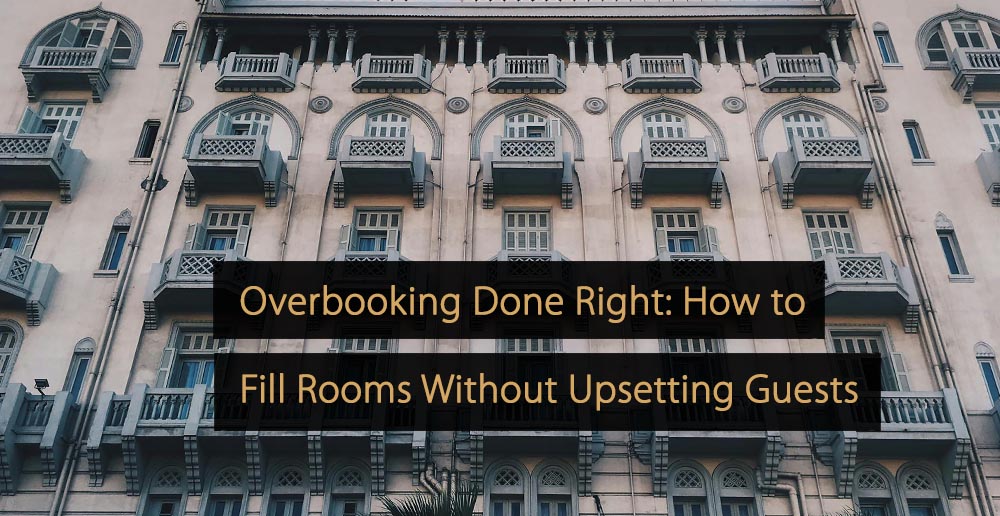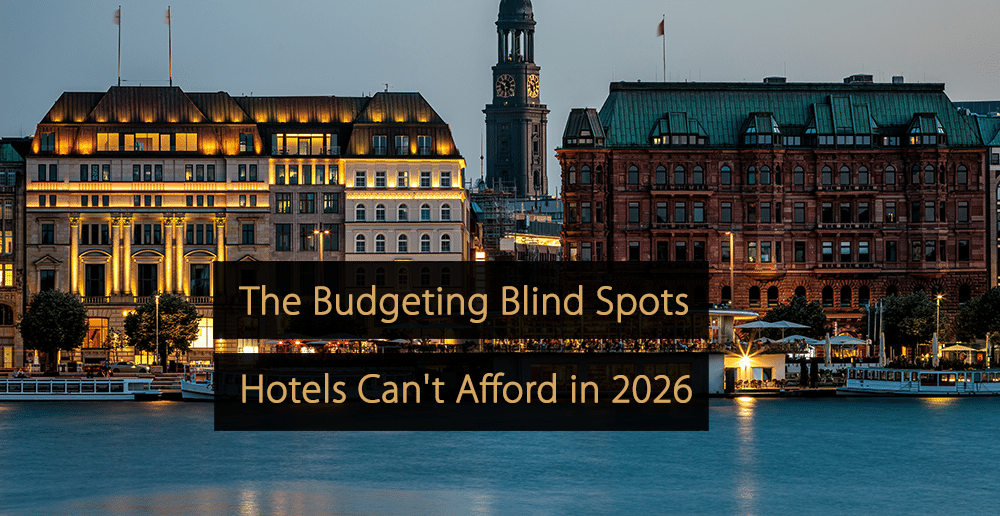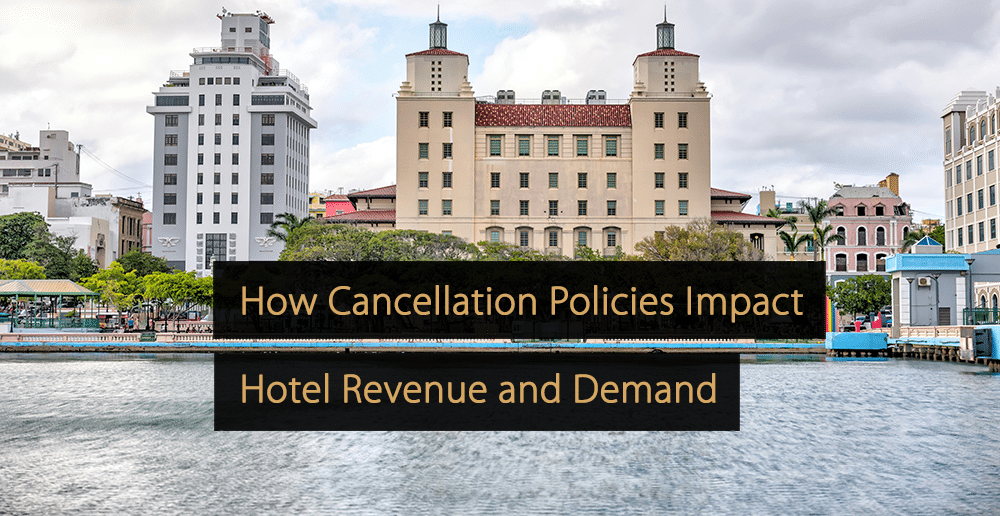Question pour notre panel d'experts en gestion des revenus :
Quelles sont les meilleures pratiques pour gérer les restrictions de durée de séjour ? Quelles considérations faut-il prendre en compte lors de leur utilisation et quels sont les risques possibles à éviter ? (Question de Niko Krauseneck)
Groupe d'experts de l'industrie
Notre panel d'experts de l'industrie est composé de professionnels de l'industrie de l'hôtellerie et du voyage. Ils ont des connaissances complètes et détaillées, une expérience de la pratique ou de la gestion et sont avant-gardistes. Ils répondent à des questions sur l'état de l'industrie. Ils partagent leurs points de vue sur des sujets tels que la gestion des revenus, le marketing, les opérations, la technologie et discutent des dernières tendances.
Notre panel d'experts en gestion des revenus
- Tamie Matthews – Consultante en ventes et marketing, RevenYou
- Connor Vanderholm – PDG, Topline
- Diego Fernández Pérez De Ponga – Directeur de la gestion des revenus, Palladium Hotel Group
- Heiko Rieder – Vice-président senior commercial et distribution, Step Partners Europe
- Niko Krauseneck – Fondateur, RevenueRebel
- Massimiliano Terzulli – Consultant en gestion des revenus, Franco Grasso Revenue Team
- Silvia Cantarella – Consultante en Revenue Management, Revenue Acrobats
- Mariska van Heemskerk – Propriétaire, Revenue Management Works
- Oleksii Kapichin – Professionnel de la gestion des revenus
- Posez une question à notre panel
- Rejoignez notre panel d'experts
« Lorsque vous envisagez des restrictions sur la durée du séjour, commencez par définir les objectifs de l’entreprise. Que souhaitez-vous réaliser en tant que responsable des revenus et que devez-vous faire pour garantir le succès de l’entreprise ? Parfois, nous devons mettre en place des restrictions pour contrôler les coûts et garantir que les attentes des clients soient satisfaites. Par exemple : le coût du nettoyage dans les appartements avec services est réparti sur plusieurs nuitées.
Ensuite, vous devez tenir compte du marché et de ses performances. Nous souhaitons peut-être que nos clients restent plus longtemps, mais ils ne peuvent peut-être pas se le permettre. Peut-être que nos concurrents offrent tous une plus grande flexibilité ? Étudiez l'événement pour lequel vous envisagez une durée de séjour minimale et analysez si les clients sont prêts ou devraient rester plus longtemps. Certaines heures de début et de fin d'événement impliquent que les clients doivent rester 2 nuits ou plus.
Tenez compte de l'événement et du type de client que vous souhaitez accueillir. Parfois, nous imposons un séjour minimum pour nous assurer que le personnel qui travaille sur l'événement restera plus longtemps mais paiera moins. Nous ne voulons pas de participants d'une nuit. « Chaque fois que vous fixez des durées de séjour minimales à une date précise, soyez prêt à revoir souvent votre stratégie et à la modifier en fonction de la demande du marché. N’oubliez pas que la seule constante dans la vie est le changement lui-même. »
« Chaque fois que des restrictions LOS sont mises en œuvre, elles doivent être clairement visibles et surveillées régulièrement par le RM. Le moyen le plus rapide de se retrouver dans une situation délicate avec des restrictions LOS est qu'un RM les définisse puis les oublie. Un RMS de qualité placera et supprimera les restrictions LOS pour vous, mais vous devez toujours les rendre visibles dans vos rapports et recommander de les conserver ou de les supprimer une fois que vous leur avez fait passer le test de détection. »
« Je pense que l’élément le plus important à analyser dans une stratégie LOS est de connaître votre client, sa nationalité et ses habitudes d’achat. Il y a des nationalités qui, pour diverses raisons, restent plus de nuits dans votre hôtel. Ou des nationalités qui ne viennent que le week-end et, peu importe à quel point vous les souhaitez, elles ne vous rendront pas visite plus de deux nuits. À ce stade, vous devez décider si vous voulez faire affaire avec elles.
En Revenue Management, on a tendance à rechercher et contrôler les nuitées avec le prix, et à éviter le scénario où un client ne souhaite rester qu'une seule nuit. Oui, ils peuvent rester, mais ils peuvent payer beaucoup plus. Ainsi, les nuitées sont contrôlées en créant une restriction de prix, ce qui signifie qu'une nuit sera 20% (c'est un exemple) plus chère si vous ne prenez qu'une nuit que si vous en prenez deux.
« Les restrictions en matière de durée de séjour (LOS) sont assez strictes, en particulier lorsqu'elles sont appliquées au niveau des maisons. Il est donc essentiel de veiller à ce que la demande soit suffisamment élevée, car ces restrictions sont susceptibles de conduire à un refus d'affaires potentielles. Plus l'exigence de durée minimale de séjour (MLOS) est élevée, plus le nombre d'affaires refusées est élevé. Une restriction plus souple qui peut avoir un effet similaire consiste à mettre en œuvre des politiques de non-arrivée.
Pour atténuer le risque de refus, il peut être efficace d'équilibrer les modèles de jours de la semaine (DOW) sur des marchés moins prévisibles avec des tarifs plus élevés. Les clients sont généralement plus disposés à payer un tarif plus élevé qu'à réserver une nuit supplémentaire inutile. Ce principe s'applique à tous les types d'établissements, y compris les destinations de villégiature. Idéalement, si la demande permet de vendre tous les jours avec une stratégie ML7, c'est parfait. Cependant, si cette stratégie se traduit par un faible taux d'occupation, il est souvent plus rentable d'accepter certaines nuits avec un faible taux d'occupation tandis que d'autres se vendent, en tenant également compte de la perte potentielle de revenus annexes.
« Bien que les restrictions de durée de vie soient un excellent outil de gestion des stocks et de régulation de la demande, elles doivent être traitées avec précaution. Il faut tenir compte de trois arguments principaux :
- vous excluez la demande
- vous supprimez les pièces de l'affichage réduisant ainsi tout effet de panneau d'affichage
- vous créez une barrière de réservation pour le client
En règle générale, je me pose trois questions avant de définir une restriction LOS :
- la demande dépasse-t-elle l'offre et est-ce que je m'attends à une occupation du 100% ?
- Y a-t-il une demande pour plus d'une nuit ? (Par exemple, pour les événements sportifs ou les concerts, la demande est généralement limitée à une seule nuit)
- Est-ce que j'ai essayé d'augmenter le taux ?
Si l’une de ces questions reçoit une réponse « NON », je n’utiliserai pas de restriction LOS, mais je gérerai la demande différemment. Ces approches incluent la fermeture des segments à faible profit, l’augmentation du tarif, l’augmentation des suppléments OTA ou de catégorie, etc. Si je pense qu’une restriction LOS est inévitable, j’essaierai de la limiter sur certains canaux ou catégories, tout en restant visible sur certains canaux.
« Il est toujours préférable d'éviter toute forme de restriction qui crée des frictions sur le marché (politiques de non-remboursement, séjours minimum, politiques de paiement restrictives, etc.). Les séjours minimums présentent plus d'inconvénients que d'avantages ; ils réduisent considérablement la part de marché visée, impliquant une diminution de la visibilité et donc du classement sur les OTA, ce qui peut avoir un impact négatif sur l'ADR et l'occupation à long terme.
En période de forte demande pour une date donnée en raison d'un événement particulier, c'est le tarif qui devient la principale restriction, car il augmente en fonction de la prise en charge. Un tarif élevé peut réduire les réservations d'une nuit (en raison d'un prix très élevé) et favoriser les séjours de plusieurs nuits, car le montant élevé de la nuitée unique avec l'événement est absorbé par les tarifs plus bas des autres nuits. Cela allonge naturellement la durée moyenne du séjour et optimise les coûts opérationnels.
Dans des cas exceptionnels, lors d’événements majeurs (Nouvel An, finale de la Ligue des Champions ou autre compétition sportive importante), on peut envisager de mettre en place une durée minimale de séjour si le tarif seul, aussi élevé soit-il, ne suffit pas à freiner les réservations. Mais il s’agit vraiment d’événements exceptionnels ; dans les cas normaux, il vaut toujours mieux éviter les durées minimales de séjour. Et si l’on souhaite inciter les clients à rester plus longtemps pour optimiser les coûts, mieux vaut proposer des promotions alléchantes aux clients plutôt que des obligations comme les durées minimales de séjour. »
« La durée de séjour est encore souvent mal utilisée, surtout lorsqu’elle est appliquée massivement au niveau de l’hôtel et que les prévisions et la demande (en temps réel) sont négligées. Le Revenue Management utilise beaucoup plus la tarification ouverte que la durée de séjour, mais je pense que la durée de séjour est importante, en particulier dans les hôtels qui ont un inventaire limité, des séjours de moyenne à longue durée, des types de chambres ou de suites uniques.
La gestion des stocks est très répandue, notamment dans les établissements de luxe qui proposent des types de chambres très particuliers. Si elle est utilisée avec soin et précision par type de chambre et par période, en fonction de la demande et des prévisions, elle est très efficace pour optimiser les stocks et les performances en général.
« La réponse se base sur l’analyse des données historiques : quels sont les jours où votre hôtel est le plus rapide ? Est-ce que vous remplissez toujours un jour de la semaine spécifique ? Est-ce que cela se produit à la dernière minute ou bien longtemps à l’avance ? Vous devez savoir si le marché est limité ; y a-t-il une surdemande et puis-je insister pour un séjour de plusieurs nuits seulement ?
Les hôtels ont tendance à fixer des limites de durée de séjour pour des jours précis bien à l’avance – mais au final, ils les suppriment à la dernière minute ; assurez-vous donc de trouver votre stratégie et de l’évaluer. À mon avis, chaque mois doit être évalué au jour le jour, du prix de départ à l’évolution de la durée du séjour, jusqu’au prix final pour certains jours. »
« Les restrictions de durée de séjour (LOS) nécessitent une nuitée très demandée ou plusieurs nuitées pour être réussies, comme un concert ou un événement sportif. Il est logique d'exiger des durées de séjour minimales pour combler les nuitées intermédiaires.
Un autre exemple pourrait être un jour de la semaine où la demande est constamment élevée. Par exemple, le samedi est toujours complet et le vendredi ne sera proche du taux d'occupation du samedi que si une restriction de séjour minimum de 2 nuits est appliquée.
Les responsables des revenus doivent comprendre les clients de l'hôtel et le marché afin d'utiliser avec succès les restrictions LOS. Voici quelques questions à poser :
- Les concurrents appliquent-ils des restrictions LOS ces jours-là ? Sinon, vous risquez de perdre des marchés au profit de la concurrence.
- Les invités potentiels accepteront-ils la restriction requise ? Les clients peuvent tolérer de rester le vendredi et le samedi, mais ne resteront pas le samedi et le dimanche car ils doivent être au travail le lundi.
Posez une question et rejoignez notre panel d'experts
Souhaitez-vous que notre panel d'experts de l'industrie réponde à une question? Ou souhaitez-vous rejoindre notre communauté d'experts et partager votre expérience, vos idées et vos connaissances avec d'autres professionnels de l'industrie ? Via les boutons ci-dessous, vous pouvez soumettre une question ou soumettre une demande pour faire partie de notre panel d'experts.
Plus de conseils pour développer votre entreprise
Revfine.com est la plateforme de connaissances leader dans le secteur de l'hôtellerie et du voyage. Les professionnels utilisent nos connaissances, nos stratégies et nos conseils pratiques pour s'inspirer, optimiser leurs revenus, innover dans leurs processus et améliorer l'expérience client.Découvrez des conseils d'experts sur la gestion, le marketing, revenue management, les opérations, les logiciels et la technologie dans notre Hôtel, Hospitalité, et Voyages et tourisme catégories.
















Leave A Comment